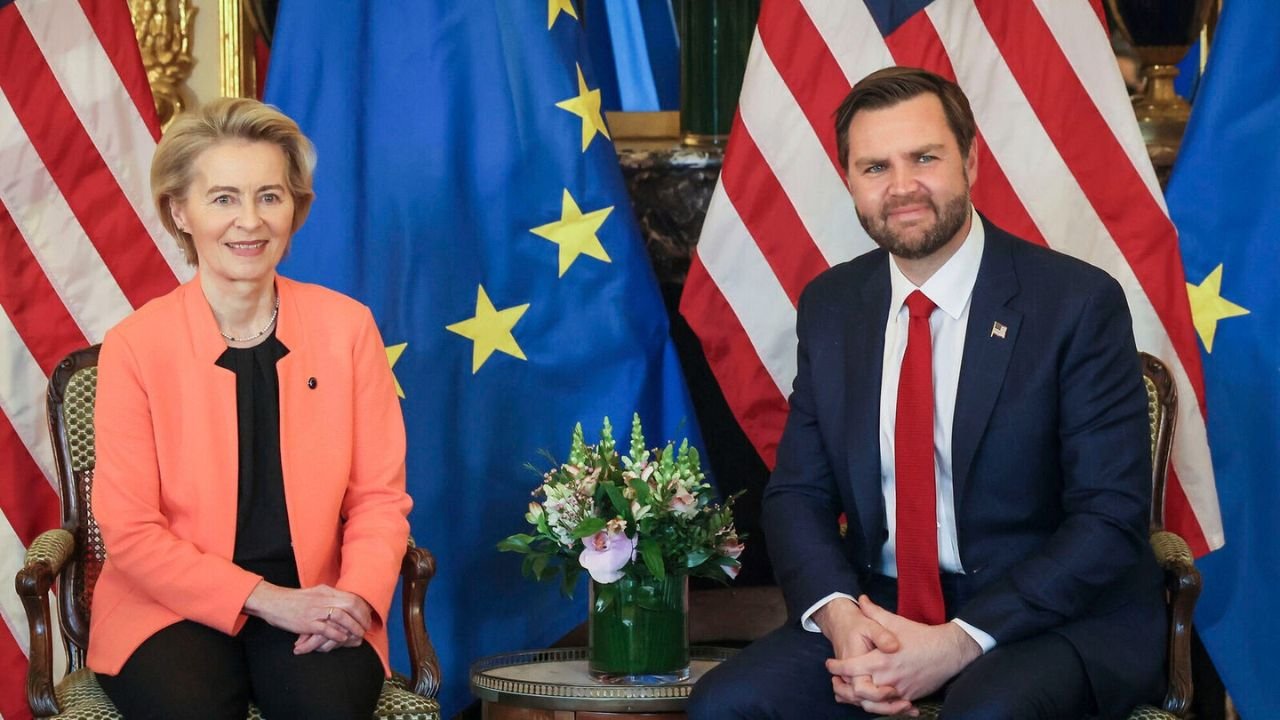The AI Action Summit 2025 in Paris was expected to be a landmark event for global AI cooperation. Instead, it ended in controversy as the United Kingdom and the United States refused to sign an international declaration on inclusive and sustainable AI.
The statement, backed by 61 nations including France, China, India, Japan, Australia, and Canada, emphasized AI accessibility, fairness, and sustainability. It aimed to address the growing digital divide between wealthy and developing nations while reinforcing AI governance that prioritizes ethics, transparency, and international cooperation.
But the UK and US rejected it. The decision has triggered a wave of criticism from experts, policymakers, and advocacy groups, raising concerns about deregulation, geopolitical divides, and Big Tech influence.
What Was in the Inclusive AI Statement?
The Statement on Inclusive and Sustainable Artificial Intelligence for People and the Planet outlined several key principles:
- Bridging the AI divide between rich and poor nations by promoting accessibility.
- Ensuring AI is ethical, safe, and transparent while aligning with international human rights laws.
- Preventing market monopolization, ensuring AI remains fair and open to competition.
- Encouraging global AI governance and cooperation, rather than isolated, country-specific regulations.
- Making AI sustainable by addressing energy consumption and environmental impact.
- Shaping AI’s role in labor markets to protect jobs and workers’ rights.
The declaration aimed to create a multi-stakeholder, human-centric approach to AI governance, bringing together governments, private companies, civil society, and researchers to ensure AI benefits all of humanity.
However, the UK and US walked away from the agreement, signaling a rift in global AI regulation.
Why Did the UK and US Reject the Agreement?
Neither country provided a detailed official reason for declining to sign the statement. However, both nations have emphasized concerns about AI overregulation and the need to protect national interests.
1. The UK’s Justification: Protecting National Interests
A spokesperson for UK Prime Minister Keir Starmer stated that the government would “only ever sign up to initiatives that are in UK national interests.”
This vague statement suggests the UK fears the potential economic impact of signing an agreement that might restrict AI innovation or give regulatory advantages to foreign competitors.
2. The US Argument: “AI Must Remain Free”
US Vice President JD Vance was far more outspoken. During the summit, he strongly opposed AI regulations, warning that:
- “Excessive regulation of the AI sector could kill a transformative industry.”
- “We need international regulatory regimes that foster AI creation rather than strangle it.”
- “American AI will not be co-opted as a tool for authoritarian censorship.”
Vance also expressed concern about global efforts to tighten control over US-based AI firms, stating:
- “The Trump administration is troubled by reports that some foreign governments are considering tightening the screws on US tech companies with international footprints.”
- “America cannot and will not accept that, and we think it’s a terrible mistake—not just for the United States, but for your own countries.”
In short, the US sees global AI governance efforts as a threat to American companies like OpenAI, Google, and Microsoft, which dominate AI research and infrastructure.
Is This a Regulatory “Race to the Bottom”?
Critics argue that the UK and US are setting the stage for a “race to the bottom” in AI regulation—prioritizing Big Tech profits over global cooperation and consumer protection.
Criticism from AI Experts and Advocacy Groups
🔹 Independent fact-checking organization Full Fact warned that the UK’s refusal to sign undermines Britain’s credibility as a leader in ethical AI governance.
🔹 Adam Leon Smith (AI expert at BCS, the Chartered Institute for IT) criticized the lack of leadership:
- “88% of surveyed tech experts last year said the UK must take the lead in shaping ethical AI standards.”
- “The world’s richest countries must show they can balance AI innovation with responsibility.”
🔹 Jeni Tennison, executive director of non-profit Connected by Data, accused the Trump administration of avoiding discussions on AI equity and sustainability:
- “It’s unsurprising that the current US administration declined to sign a commitment to more inclusive, equitable, and sustainable AI.”
- “They claim to support competition and worker rights while reinforcing a deregulatory race to the bottom.”
🔹 Sandra Wachter (Oxford Internet Institute Professor of Technology and Regulation) dismantled the US argument that “regulation stifles innovation”:
- “Regulation isn’t about stopping AI. It’s about making it less biased, more explainable, and less harmful.”
- “Who benefits from no regulation? AI billionaires or the rest of the world?”
The Bigger Picture: AI Geopolitics and Economic Competition
The AI Action Summit’s fallout highlights deeper geopolitical divisions in AI policy:
1. The US vs. China Factor
The US is determined to maintain AI dominance, especially as China rapidly advances in AI development. The Biden administration (and now Trump’s) has restricted China’s access to advanced AI chips, aiming to limit China’s AI capabilities.
The US likely sees any AI declaration that includes China as a threat to its technological leadership—especially if it forces American AI firms to share knowledge or limit AI development.
2. Europe vs. the US on AI Regulation
The EU has taken a much stricter approach to AI regulation, pushing forward the AI Act, which enforces strict rules on AI transparency, ethics, and data privacy.
The US and UK, however, are avoiding strong regulations, fearing they will slow down AI innovation and give China a competitive edge.
3. The AI Gold Rush Continues
While debates on AI regulation rage on, the world’s biggest tech companies continue investing billions into AI infrastructure.
- Microsoft, Google, Meta, Amazon, and OpenAI are spending unprecedented amounts on AI research, data centers, and semiconductor manufacturing.
- The AI industry is expected to be worth trillions within the next decade, and whoever controls AI chips, models, and cloud infrastructure will dominate the future economy.
In this context, US and UK leaders are reluctant to adopt regulations that could slow them down—even if it means rejecting international agreements.
What Comes Next?
1. Will the UK and US Face Backlash?
🔹 The EU and other signatory nations may push forward with their own AI regulations, potentially making US and UK AI companies less competitive in regulated markets.
🔹 Developing nations may see this refusal as an example of Western AI dominance, fueling distrust in American AI leadership.
2. Will Big Tech Influence Keep Blocking AI Regulations?
🔹 With tech billionaires investing heavily in AI, their lobbying power will likely keep AI regulations weak in the US and UK.
🔹 AI regulations could remain a patchwork of national policies, making global AI governance nearly impossible.
3. The Next AI Summit: What’s at Stake?
🔹 Future AI summits may attempt to bridge the gap between the US, UK, EU, and China on AI policies.
🔹 If another major nation refuses AI regulations, the risk of AI monopolies, misinformation, and unchecked power could grow even further.
Final Thoughts: The AI Regulation Battle Has Just Begun
The UK and US refusal to sign the Inclusive AI Statement is a clear sign that global AI governance is fractured. While some argue that regulation slows innovation, others warn that a lack of oversight will allow AI to be exploited by corporations and governments.
As AI continues reshaping the world, the battle between free-market AI vs. regulated AI will define the future of technology. The question remains: Will AI be developed responsibly, or will profit-driven policies take priority over ethics and accountability?

